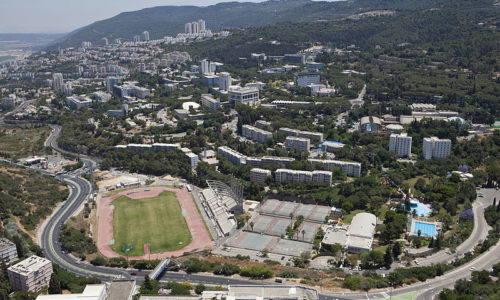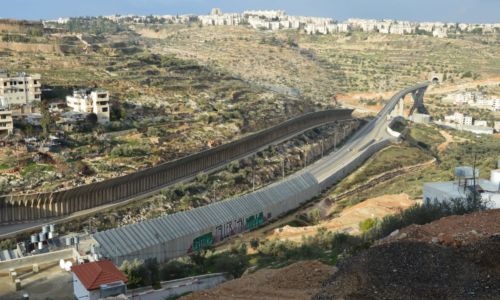Urban planner Martens experienced Hamas’ missile fires up close
-
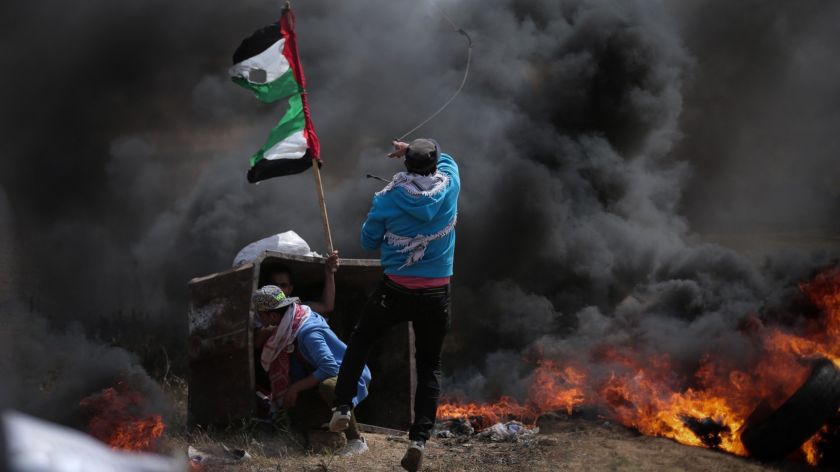 Archiefbeeld uit 2018 uit de Gazastrook ter illustratie. Credit: Pixabay.
Archiefbeeld uit 2018 uit de Gazastrook ter illustratie. Credit: Pixabay.
With uprisings, rocket fire and close to a hundred deaths, the conflict between Israel and Palestine recently flared up again. Urban planner Karel Martens, who lives in Tel Aviv and until recently worked at Radboud University, experienced it up close. ‘I was quite tense during the first missile attack, but I got used to it.’
‘We had to take shelter from incoming missiles seven or eight times, ‘ says urban planning professor Karel Martens. ‘The first time, I was just arranging some things for work when suddenly the air-raid alarm went off. My wife and I live on the seventh floor of an apartment building in Tel Aviv. We can never get to the shelter on time, so we sat down in the stairwell, as far as possible from the building’s exterior walls and windows.’
The urban planner, who until recently was also connected to the Radboud University, is remarkably relaxed while he talks about the war situation. ‘Hamas’ missiles are generally not that strong,’ he explains. ‘Sometimes a large part of a building’s structure remains intact after an impact. Besides, we have good anti-aircraft guns here, so most of them don’t even hit the ground. My French neighbour didn’t even take shelter – he went to his balcony to watch the incoming missiles being shot down from the sky.’
Recent escalation
The missile fires are the result of the recent escalation in the dormant conflict between Israel and Palestine. It started with the eviction of some Palestinians in the Sheikh Jarrah neighbourhood of Jerusalem. This led to Palestinian protests around the well-known Al-Aqsa Mosque, after which the police decided to invade the mosque with tear gas and flash grenades.
‘My neighbour went to his balcony to watch the incoming missiles being shot down from the sky’
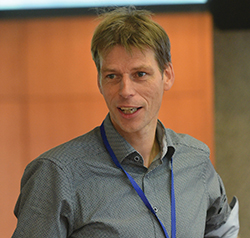
In response, Hamas fired missiles from Gaza at Israeli cities, including Tel Aviv. It is the first time since 2014 that this has happened. Israel, in turn, decided to launch air strikes on Palestinian territory. Meanwhile, it was also restless on the ground: conflicts between Israelis and Palestinians arose in several large cities. The official death toll is unclear, but estimates are close to a hundred.
Despite his level-headedness, Martens was still very shocked. ‘During the Second Intifada (the Palestinian uprisings in Israeli-occupied territory from 2000 to 2005, ed.) I already lived in Israel and I have lived there again since 2015, but in all those years I have never had to hide from missiles. The first time the air-raid siren went off, it was a real shock. You sometimes talk about it in advance, but it is different when it actually happens – you can hear the bangs outside, which is scary. But by the seventh time within a few days, it feels like routine.’
Ceasefire
Last weekend, a ceasefire was declared between Israel and Hamas, yet it remains restless. In several cities there are still protests and the threat of new episodes of violence is always looming.
According to Martens you can feel the tension in people. ‘Fortunately, the neighbourhood where I live is not too bad. I just notice that I have become very alert: with every loud noise I think that the air-raid alarm will go off again. But I’ve had it easy – I can well imagine that events like this have a greater impact on people in Gaza, for example.’
‘What is happening now is literally land grabbing, bringing the conflict to a head’
The university where he works, the Technion Institute of Technology in the northern-lying region of Haifa, has temporarily cancelled most of the lessons or replaced them with online lectures as a precaution. The tension of the conflict can be felt right down to Martens’ lectures. ‘In my field, it is about the interpretation of public space. By definition, that issue is already politically charged here. Because for whom do you design that space: Israelis or Palestinians? You also see that students do not dare to speak freely, because they are afraid of hurting someone else or putting relations on edge.’
This reluctance can also be seen in Martens, in how he chooses his words carefully and does not venture to make any harsh statements. Choosing sides is taboo. ‘I understand both sides of the conflict,’ he says several times. Yet he is critical of Israel’s policy. ‘What is happening now is literally land grabbing, bringing the conflict to a head.’
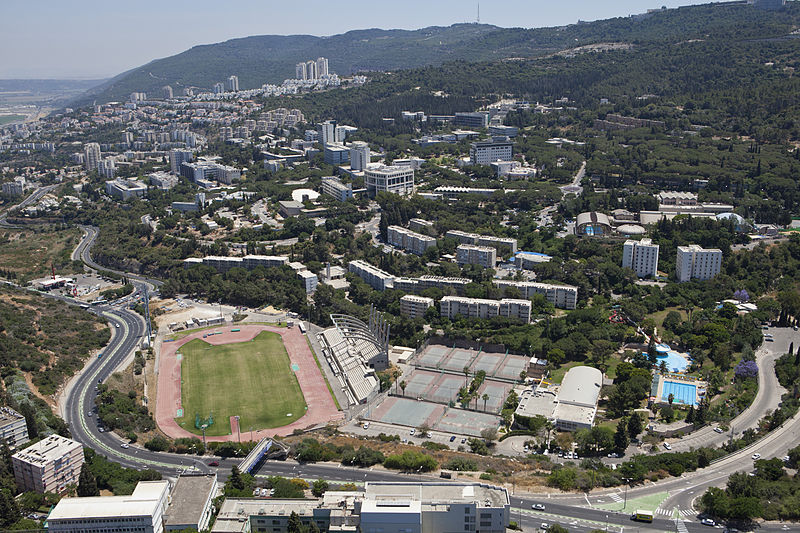
Bad developments
A few years ago, the professor stated in an interview with Vox that he felt that Israel had deteriorated compared to the first period when he lived there. This conviction has only become stronger. ‘I fear for the democratic content of this country. I see that extremism has increased a lot – on both sides, by the way. Jewish extremism has increased and is supported by the state. On the other hand the influence of Hamas, which on paper seeks to destroy the Israeli state, is increasing.’
‘Those are bad developments. During the Second Intifada, there was still talk of a search for peace between the two states. I find it difficult to talk about both sides, because I am mainly in contact with the Israeli side, but I see a lot of hate speech and extremism. Peace is not even talked about anymore – that’s frightening.’
‘Peace is not even talked about anymore – that’s frightening’
Does Martens see himself living in Israel forever? ‘Unfortunately things are not going in right direction, politically. If democracy continues to deteriorate, I don’t know whether I still want to live in this country,’ he doubts out loud. ‘I don’t want to live in a state where extremism predominates.’
Remaining hopeful
But there are also positive developments, the professor adds. ‘A lot is going well at the local level. When I returned in 2015, I suddenly saw a lot more Palestinians; there is literally and figuratively more space for them in the public space. In our own neighbourhood it is actually pretty quiet; everyone lives well together here. More and more people of Palestinian descent are being hired at the university too. The percentage is still not high, but it is growing. As you can see there is an ambition to improve on a local level.
As long as he continues to see positive developments on a local scale, there is hope for Martens. ‘A mixed society with Israelis and Palestinians is increasingly possible. In time, perhaps even Palestinians will end up in good positions – at the university, for example, or in politics. I remain hopeful.’
